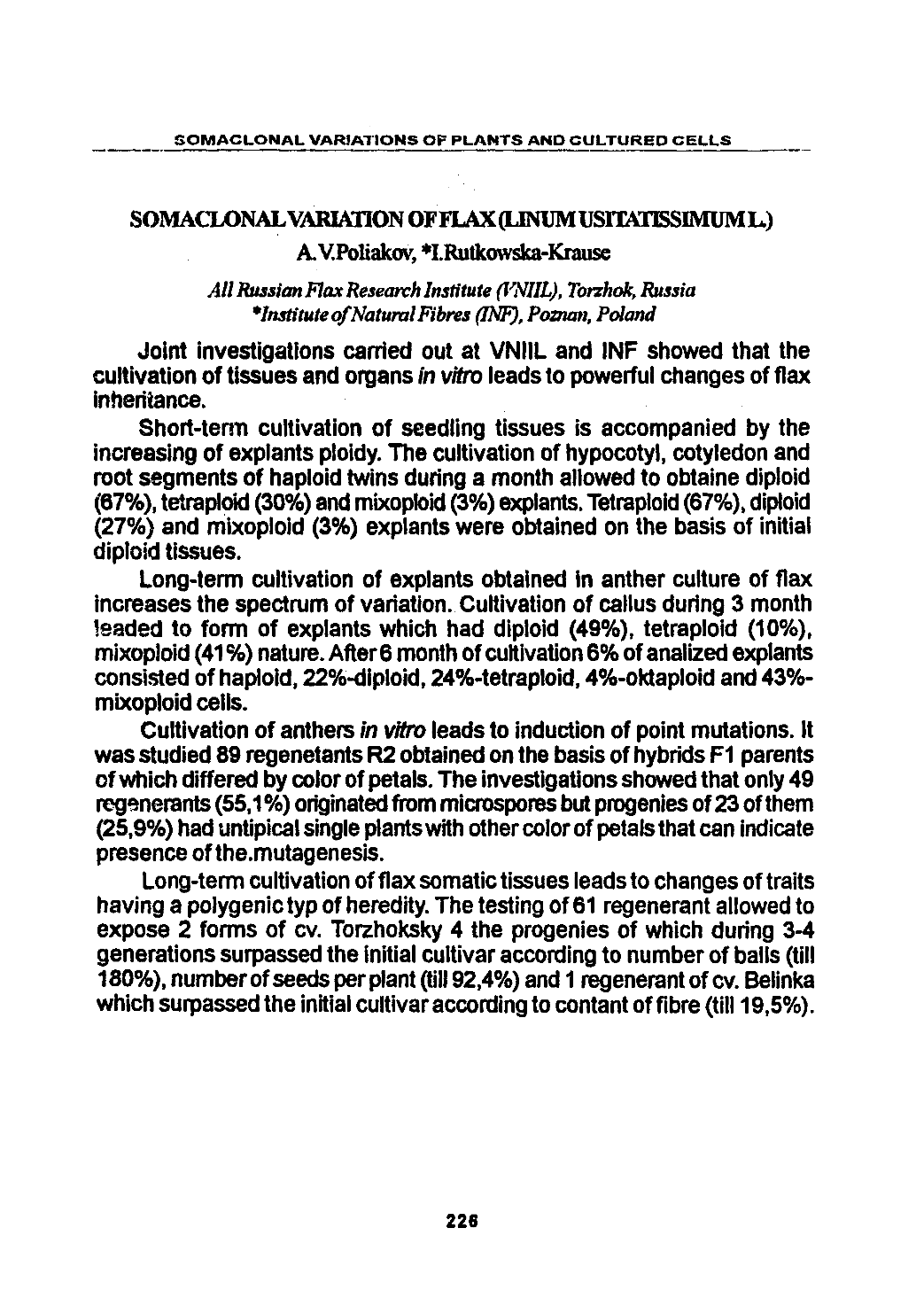

S O M A C L O N A L V A R IA T IO N S O F P L A N T S A N D C U LT U R E D C E L L S
SOMACLONALVARIATIONOFFIAX(LINUM USITATISSIMUML.)
A.V.Poliakov, *I .Rutkowska-Krause
A ll RussianFlax Research Institute (VNIIL), Torzhok, Russia
*Institute o fNaturalFibres (INF), Poznan, Poland
Joint investigations carried out at VNIIL and INF showed that the
cultivation o f tissues and organs
in vitro
leads to powerful changes of flax
inheritance.
Short-term cultivation o f seedling tissues is accompanied by the
increasing o f explants ploidy. The cultivation of hypocotyl, cotyledon and
root segments o f haploid twins during a month allowed to obtaine diploid
(67%), tetraploid (30%) and mixoploid (3%) explants. Tetraploid (67%), diploid
(27%) and m ixoploid (3%) explants were obtained on the basis of initial
diploid tissues.
Long-term cultivation of explants obtained in anther culture of flax
increases the spectrum o f variation. Cultivation o f callus during 3 month
leaded to form o f explants which had diploid (49%), tetraploid (10%),
mixoploid (41%) nature. A fte r6 month o f cultivation 6% of analized explants
consisted o f haploid, 22%-diploid, 24%-tetraploid, 4%-oktaploid and 43%-
m ixoploid cells.
Cultivation o f anthers
in vitro
leads to induction o f point mutations. It
was studied 89 regenetants R2 obtained on the basis o f hybrids F1 parents
o f which differed by color o f petals. The investigations showed that only 49
regenerants (55,1%) originated from microspores but progenies of 23 of them
(25,9%) had untipical single plants with other color o f petals that can indicate
presence o f the mutagenesis.
Long-term cultivation o f flax somatic tissues leads to changes of traits
having a polygenic typ o f heredity. The testing of 61 regenerant allowed to
expose 2 forms o f cv. Torzhoksky 4 the progenies of which during 3-4
generations surpassed the initial cultivar according to number o f balls (till
180%), number of seeds per plant (till 92,4%) and 1 regenerant o f cv. Belinka
which surpassed the initial cultivar according to content o f fibre (till 19,5%).
226
Научная электронная библиотека ЦНСХБ









